The tourism sector has been hit hard by the Covid-19 pandemic. This year’s second European Rewilding Network webinar saw 44 participants come together to discuss ways to mitigate its impact on nature-based tourism, and to accelerate recovery.
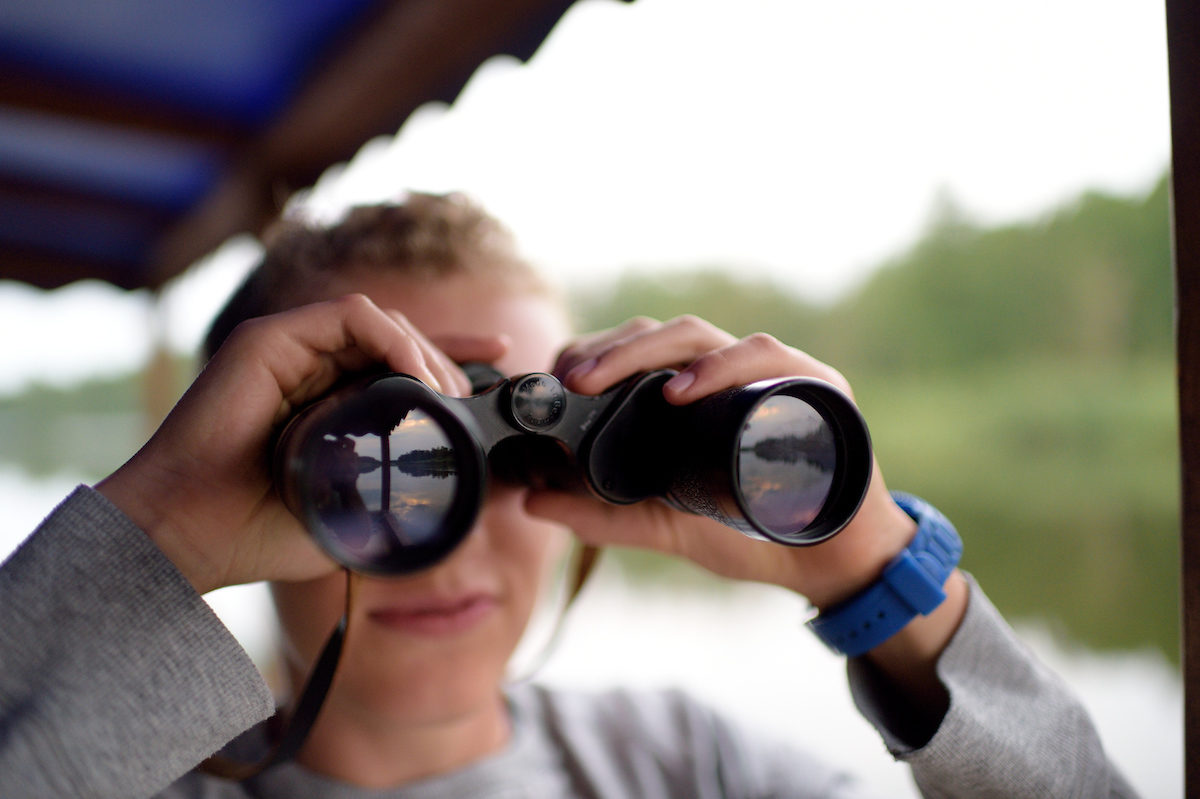
Softening the blow
The tourism sector is currently one of the hardest hit by the Covid-19 pandemic, with a ban on non-essential travel and some countries still in complete lockdown. With many members of the European Rewilding Network involved in nature-based tourism, the network’s second webinar of the year saw a record-breaking 44 participants from 15 European countries gather to enjoy talks from three guest speakers, share insight and experience, and discuss the best ways forward.
Preparing for the future
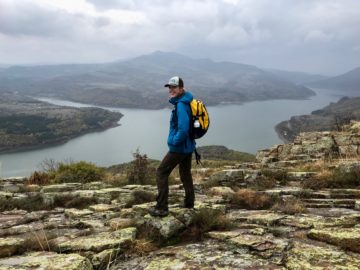
The webinar’s first speaker was Aukje Van Gerven, Operations Manager at the European Safari Company (ESC). Listed by the Guardian newspaper as one of the 10 best ethical travel companies, the ESC specialises in experiential, nature-based travel. Clients contribute to rewilding initiatives through conservation levies while participating tourism companies benefit from communications, developmental and operational support.
Aukje explained how the ESC has experienced cancellations and a major drop in bookings during the pandemic, accompanied by a rise in customer service demand as people with existing travel plans seek to get in touch to cancel or reschedule trips.
To adjust to changing business conditions, the ESC team have employed a short-term digital marketing strategy, digging deep into web analytics and enhancing their website through search engine and mobile phone optimisation, and by boosting speed. They are also updating and generating web content, engaging readers with interesting new blogs, social media posts and other material.
“Many activities which were on our to-do list have now become our primary focus,” explains Aukje. “There is so much that a nature-based tourism company can do now to improve its operations in the future, from reviewing online sales processes right through to building better customer relations.”
A Portugal perspective
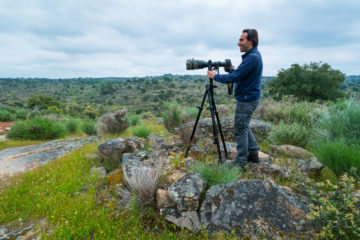
The next speaker was Fernando Romão, who runs Wildlife Portugal. This successful wildlife photography and guiding business is based in northern Portugal’s Côa Valley and has worked with the European Safari Company for a number of years.
After presenting his company, Fernando spoke about the various influences on his business. These include the seasonal nature of operations, a lack of specialised human resources, natural disasters like wildfire, and the impact of social media.
“Multiple outbreaks of wildfire in 2017 led to a major reduction in bookings in 2018,” says Fernando. “In 2019 we then experienced significant growth, with new programmes and an optimistic outlook for 2020. This optimism ended abruptly in March 2020 with the Covid-19 pandemic, when all of our bookings were either cancelled or postponed until 2021.”
Just as with the ESC, the cessation of business activities during Covid-19 has allowed the Wildlife Portugal team to refocus their attention on other important tasks. They have updated their website, created new programmes, forged new partnerships, and applied for a number of tourism-related certificates.
Isolated yet inventive
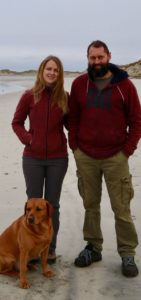
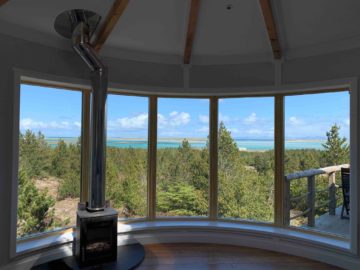
The last webinar presentation was made by Kathryn Johnson, who runs the Uist Forest Retreat with her husband Angus. This nature-based tourism start-up, situated on the island of North Uist in northwest Scotland’s Outer Hebrides archipelago, offers luxury accommodation in a stunningly wild location. The retreat partnered with the ESC in 2019.
Kathryn started by explaining their extremely isolated current status. The almost 2 hour-long ferry crossing from the Isle of Skye is currently closed, and it is not clear when it will restart. This was the first full year of business for the retreat, and the Johnsons were looking forward to stabilising their finances and taking a salary. The Covid-19 pandemic has changed all this, and to maintain their livelihoods the couple are now hoping to qualify for a government loan.
Kathryn and Angus are also using their time productively, working to optimise their website, create more content about North Uist and its wildlife, and gather new visual content.
Collective optimism
In the face of ongoing challenges arising from Covid-19, those ERN members who participated in the latest webinar took heart and inspiration from hearing about the efforts of others. There was a shared sense of “weathering the storm”, and a collective optimism that the nature-based tourism market would pick up again in the near future.
“It was great to see so many people come together and engage in such a positive, forward-looking way,” says Mei Elderazdi, Rewilding Europe’s ERN Coordinator. “Despite the current state of the market, nature-based tourism providers are preparing well for the day when Europeans are allowed to enjoy the continent’s wild nature again. Which we all hope will be very soon.”
ERN 2.0
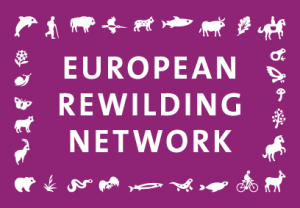 Today rewilding is gaining momentum as a progressive and effective approach to conservation in Europe. Underpinning this trend, the burgeoning European Rewilding Network (ERN) continues to foster collaboration and amplify results.
Today rewilding is gaining momentum as a progressive and effective approach to conservation in Europe. Underpinning this trend, the burgeoning European Rewilding Network (ERN) continues to foster collaboration and amplify results.
Founded by Rewilding Europe in 2013, the aim of the ERN is to enhance the efforts of each member by facilitating the exchange of skills, insight and experience. Members meet regularly, usually via webinar, while nature-based businesses can also apply to Rewilding Europe Capital, Rewilding Europe’s enterprise loan facility.
The criteria for ERN membership have recently been revised, as the network shifts its focus from expansion to support for practical, result-oriented rewilding. Rewilding Europe extends a warm welcome to all European rewilding initiatives and encourages them to apply for ERN membership.
